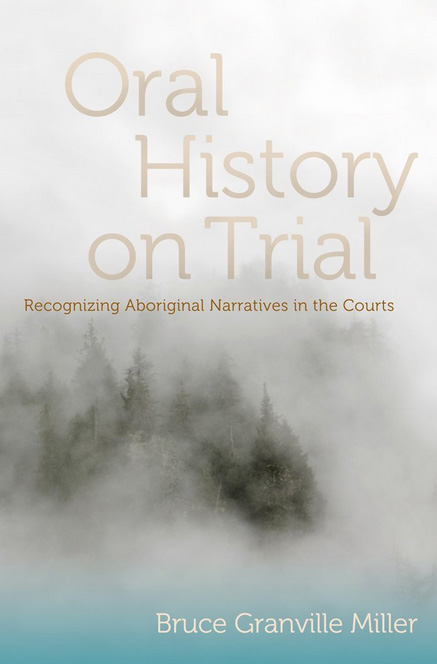Book Review: Oral History on Trial
Reviewed by Karl Hele
Since Delgamuukw (1997) Canadian courts have failed to effectively incorporate oral narratives into Western legal practice. Bruce Granville Miller’s examination of how the courts and its experts treat oral narrative is both informative and shocking. Impeccably researched and argued, Miller draws from his experience working with Aboriginal communities – largely in British Columbia and Washington State – his role as an expert witness, and training as an anthropologist.
He offers an excellent comparative examination of oral narratives from legal, academic, and Aboriginal perspectives. Highlighting the commonalities and differences between these intellectual traditions, Miller then moves to critique the Crown’s usage of oral testimony. He devotes and entire chapter, “Court and Crown”, to dissect a key Crown expert’s arguments about use of oral narratives. Simply, Miller shows show how these records were altered, manipulated, and misquoted or misconstrued by the Crown’s expert. I believe that the deconstruction of the Crown’s poorly constructed oral narrative arguments will serve as a basis for court appeals based on the expert’s problematic testimony.
In the final chapters Miller offers suggestions on how courts can use oral narratives to understand and rule on the merits of each case with diligence and respect for both the narrative and the elder. Overall, Oral History on Trial, is a must-read for communities contemplating legal actions, lawyers, students, and academics. It will serve to influence how oral narratives are seen and utilized both in and outside of the courtroom.
Miller, Bruce Granville. Oral History on Trial: Recognizing Aboriginal Narratives in the Courts. Vancouver: University of British Columbia Press, 2011.



